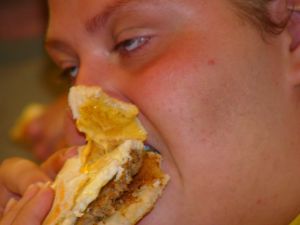 Here are some ingredients that should be the part of a workable weight loss plan.
Here are some ingredients that should be the part of a workable weight loss plan.
Create a Plan – It’s your guide to losing weight. It shows what you want to do (e.g. exercise more), when (in the morning), how (walking fast), why (to be healthier). Include a dietary guide (what you are going to eat) and exercise components.
Stick to the Plan – If you don’t, you are likely to get lost and give up.
Get into the Right Frame of Mind – Do not focus on shedding weight per se, but rather healthy living. Instead of thinking in terms of how much weight you plan to lose, focus on the actions you intend to undertake to lose it (e.g. swimming for 30 minutes).
Take it Easy – Make gradual changes in your diet and exercise regimen. If you rush into the process you will be putting uncalled pressure on yourself and turn your weight loss efforts into a nightmare.
Measure your Progress – Take stock every now and then to see where you are at. Again, it’s not so much about how much weight you’ve lost over a period of time, but more about how many miles you’ve walked, for instance.
Plan to Stay Motivated – When you feel discouraged because you have not exercised as much as you’ve planned, re-invigorate yourself by contemplating the reasons for wanting to have a healthy lifestyle.
Set achievable, measurable goals – Outline goals and view them as part of a long-term strategy to get you to an improved state of health. These should be small-scale (like a pound a week) which is easily achievable and will help to build momentum. Unrealistic weight loss goals are a recipe for disappointment and failure.
Eating Habits
Eat Healthy – Specify what you are going to eat on a daily basis. Foods like fibers, fruits and vegetables have vitamins and minerals that give the body energy and help it to operate smoothly. Cut out foods high in calorie content.
Eat Balanced – Eat smaller meals frequently which will help prevent binge eating and reduce food cravings. It will keep your metabolic rate going, burn more calories and help you lose weight.
Use Smaller Plates – Serve food in smaller plates. It makes your plate look full, but the actual amount of food is less than you imagine.
Do not Skip Breakfast – Eating breakfast gets the metabolism going early on and you will have longer hours to burn off calories.
Take your Time when you are Eating – It takes about 20 minutes before the brain realizes that your stomach is full. By eating slowly, you allow your brain to catch up with your body signals which makes you feel satiated.
Keep a List of what you Eat on a Daily Basis – This generates self-awareness of how much junk you eat and how much money you waste. It also serves as motivation to eat the right kind of food and to spend money on healthy foods.
Exercise – When you add regular low key exercises to your diet plan, you are increasing your chances of losing weight and keeping it under control. It also helps to regulate the appetite and increase calorie burning. In addition, you will feel more energized and strengthen your staying power.
